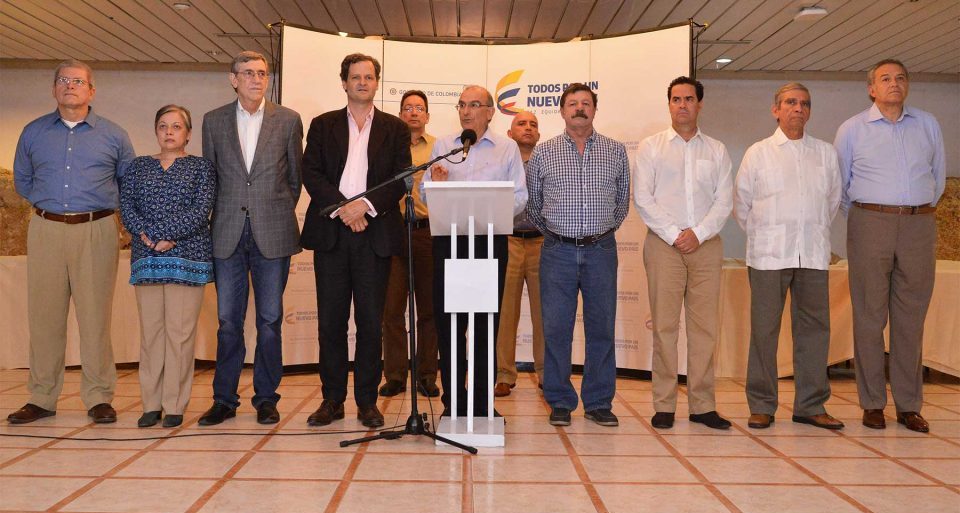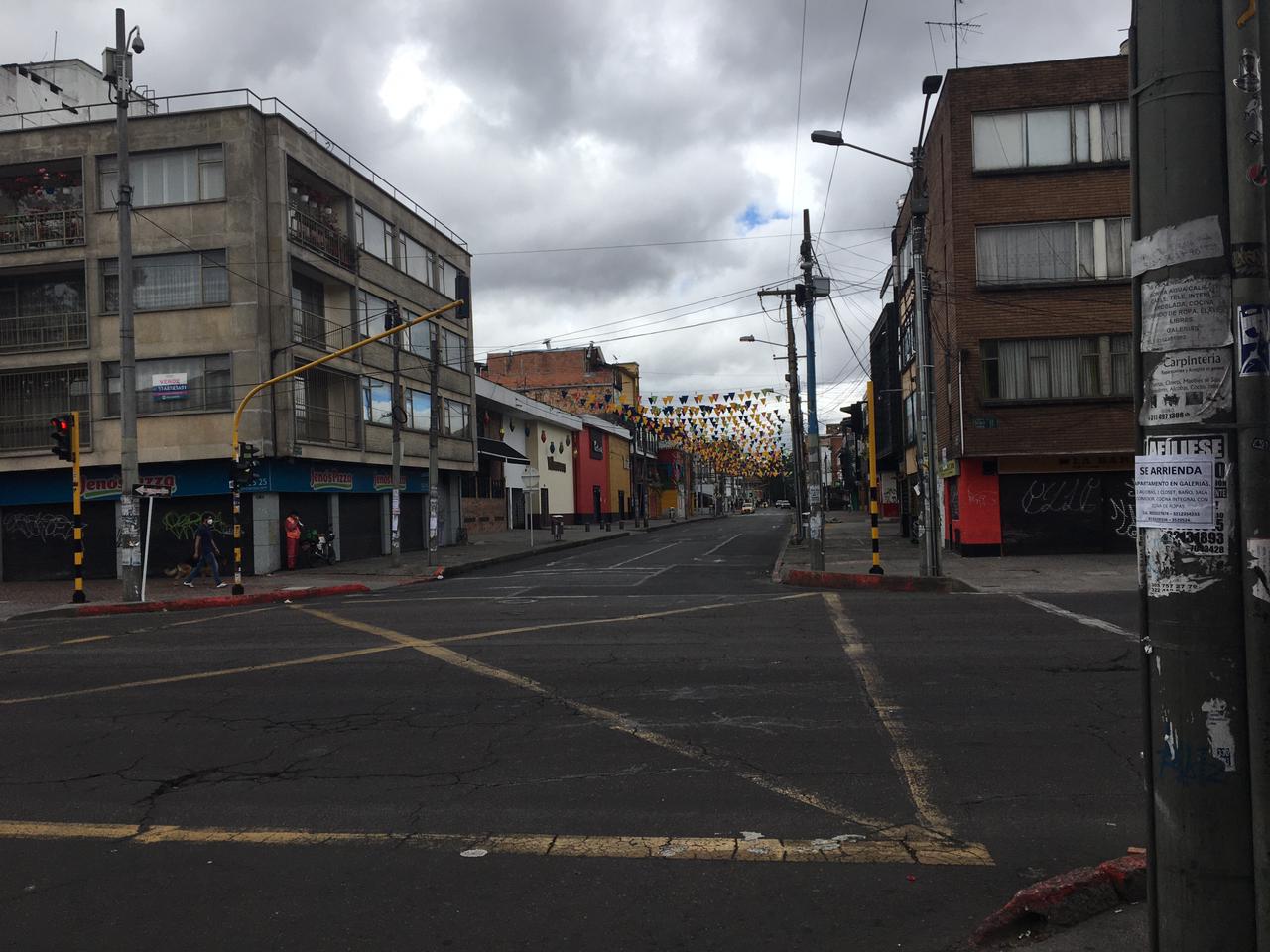
The government’s negotiating party in Havana.
Veronika Hoelker explains that while there are still significant issues to be resolved, missing the deadline is by no means the end of the Colombian peace accord.
March 23, 2016 was meant to be a historic day for Colombians: A day that would see the signing of a peace agreement between the FARC and the Colombian government, putting an end to one of the longest running armed conflicts in the world. That was the promise made six months ago, when President Juan Manuel Santos and FARC leader Timochenko historically shook hands in Havana after announcing a breakthrough agreement on victims’ rights.
To be sure, the past few days have been unprecedented for many reasons. For the first time after nearly nine decades, a serving U.S. president traveled to Cuba in an effort to normalize relations between the two countries that have been broken down since 1959. President Obama and Cuban president Raúl Castro even attended a baseball match together, and to top things off, the Rolling Stones are giving a free concert in Havana on Friday.
Clearly, if there was ever a perfect moment for announcing a final Colombian peace accord, it was this week. Unfortunately, it did not happen.
For many, this did not come as a big surprise, especially after the rupture caused by the episode in Conejo, Guajira, where FARC commanders accompanied by armed guerrilla fighters apparently mingled with local communities. In the aftermath of these events, President Santos stated that he would not sign a poorly thought out agreement just for the sake of meeting a deadline. Hopes remained high that on March 23, the peace delegations would at least announce a bilateral ceasefire. However, as chief government negotiator Humberto De La Calle explained yesterday, “important differences” remain between the government and the FARC with regard to the ‘concentration zones’ – designated areas where FARC rebels would be gathered during the ceasefire and their demobilisation.
Politically, and especially for Santos, the postponing of the final accord constitutes a serious setback. The President’s approval ratings are already at an all-time low of 25% and Colombians are increasingly sceptical of the peace process.
And yet, the fact that no major announcements were made yesterday is not a disaster. The peace process is still on the right track, and it remains the best opportunity Colombia has ever had to end its internal armed conflict.
For one thing, peace negotiations tend to be lengthy and complex, and Colombia is by no means a hopeless case. As a matter of fact, most peace processes in the world (approximately 84%) have taken well over three years and only about 16% have been finalised before the three-year mark. In the Philippines for example, peace negotiations between the Moro Islamic Liberation Front and the government have been going on for 17 years.
In addition, the remaining agenda items, such as the ceasefire and disarmament are extremely delicate issues that require prudence, and rushing into an agreement would not serve any of the negotiating parties, nor would it serve the Colombian people. Perhaps trying to strike deals on two agenda points (End of the conflict and Implementation) within six months was overly ambitious, considering that it took three years to reach four partial agreements.
On the other hand, setting a deadline for peace might not have been entirely useless: Minister of the Interior Juan Fernando Cristo stated that it “served as an important impetus” to the talks and that without it, the parties may not have been able to make substantial progress in the past few months. He also affirmed that the government “cannot leave the negotiating table just because the deadline was not met”.
Indeed, one cannot disregard the advances already made in the peace process that have led to milestone agreements on land reform, illicit drug cultivation, political participation and victims’ rights. Overall, the current negotiations with the FARC rebels have been the most successful the country has ever experienced, and throwing these achievements out of the window now would not only be unwise but also irresponsible.
The fact that the conflict did not formally end on March 23, does not mean peace is not feasible. In the grand scheme of things, it will probably not matter whether or not the final accord was signed on a given date, as long as important advances continue to be made in Havana in the upcoming weeks, and as long as a deal is reached in a not too distant future.
For obvious reasons, the negotiating parties may refrain from setting a new date for a final peace agreement. However, in an official statement, the FARC delegation has already announced the presentation of a “roadmap” on how to proceed in the next rounds of talks, reiterating its commitment to making “2016 the year of peace in Colombia”.
Veronika Hoelker holds a Master’s degree in International Relations of the Americas from UCL and currently works at the Bogotá-based NGO the Permanent Committee for the Defense of Human Rights. Veronika assists the judicial advisers at the NGO in matters related to transitional justice and the Colombian peace process in general.





